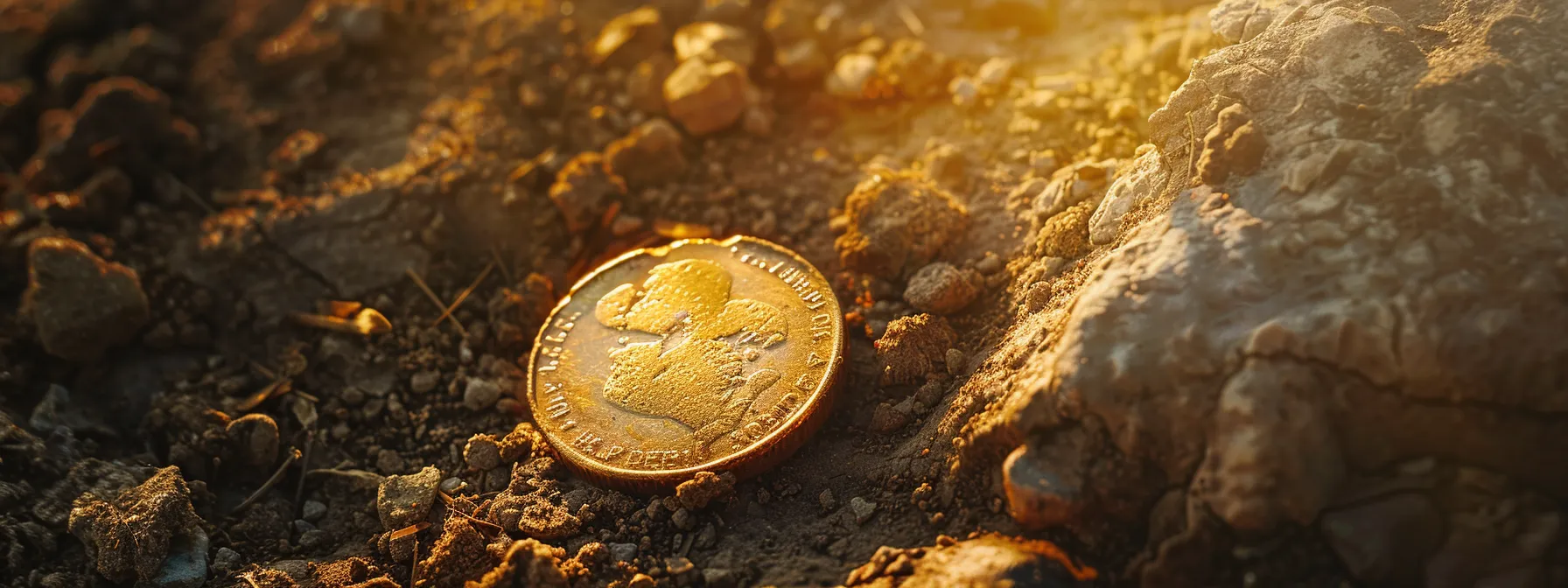

Are you struggling to find the right headphones for your metal detector? Ensuring compatibility can be tricky, especially when considering factors like decibel levels, frequency response, and hunting conditions. In this guide, I’ll help you navigate the different types of headphones, highlight key features to look for, and discuss both wired and wireless options. By the end, you’ll understand how to choose headphones that enhance your prospecting experience and eliminate common signal issues. Let’s get started and make your treasure hunts more successful!
Understanding Metal Detector Headphone Compatibility

Understanding headphone compatibility is crucial for maximizing your metal detecting experience. We’ll dive into why compatibility matters, explore how metal detectors communicate with headphones on LootDetective Home, and identify common connector types. Additionally, I’ll explain the importance of matching impedance, measured in ohms, for optimal performance. These insights will help you make informed choices that enhance your treasure hunting adventures.
Discover Why Compatibility Matters
When choosing headphones for metal detecting, compatibility is key to maximizing your experience. I’ve learned that the best metal detectors loudspeaker setup can significantly reduce background noise, allowing me to focus on the subtle signals my metal detector picks up. For instance, headphones with aptX technology can enhance audio sensitivity, which is especially beneficial for gold prospecting where faint sounds can mean hidden treasures.
Learn How Metal Detectors Communicate With Headphones
Metal detectors communicate with headphones through various methods, primarily utilizing a transmitter that relays audio signals. For instance, I often rely on wired headphones, which provide a direct connection that minimizes latency and ensures I hear every beep and tone without delay. Alternatively, bone conduction headphones can be an excellent choice, allowing me to stay aware of my surroundings while still receiving clear audio feedback from best metal detectors. Understanding these communication techniques helps me select the right gear that enhances my treasure hunting experience by reducing unwanted noise and improving overall audio clarity.
Identify Common Connector Types
When it comes to choosing headphones for my metal detector, understanding common connector types is crucial. Most metal detectors, such as the best metal detectors Manticore, use a ¼-inch or ⅛-inch plug, which ensures compatibility with a variety of headphone styles, including muffs that really help block out background noise during treasure hunting. I always check to see if the connector is right angle or straight; a right angle can be less likely to get snagged and damaged while I’m out searching for that next relic.
Match Impedance for Optimal Performance
Matching the impedance of your headphones with your metal detector from the best metal detectors can enhance audio quality significantly. For instance, when using an Equinox, it’s essential to choose headphones with an impedance rating that aligns with the detector to ensure optimal performance. I always pay attention to the limiter in my headphones, as it can help protect against sudden loud sounds and allow me to hear even the faintest signals without discomfort.
| Headphone Impedance | Metal Detector Model | Recommended Headphones |
|---|---|---|
| 16 – 32 ohms | Equinox | High Sensitivity Headband Headphones |
| 32 – 64 ohms | Manticore | Over-ear Noise Cancelling Headphones |
| Above 64 ohms | Multiple | Professional Studio Headphones with Limiter |
Choosing the right headphones is just the start. Now, let’s look at the different types of headphones that can enhance your metal detecting experience.
Exploring Types of Headphones for Metal Detectors

Choosing the right headphones for metal detecting is essential for an optimal experience. I recommend considering over-ear, on-ear, and in-ear models based on your comfort and how they support sound clarity. Features like noise-canceling capabilities can also help me focus on signals while blocking out distractions. Additionally, exploring waterproof and weather-resistant options protects against outdoor elements, and looking into specialized metal detecting headphones ensures I benefit from tailored features from best metal detectors. Each of these considerations will enhance my treasure hunting adventures, making every find even more rewarding.
Choose Between Over-Ear, on-Ear, and in-Ear Models
When weighing options between over-ear, on-ear, and in-ear models, I find that over-ear headphones provide excellent sound isolation, which can be invaluable when I’m hunting in noisy environments. They tend to be more comfortable for long sessions, as they cushion my ears well. On the other hand, on-ear models can be lighter and more portable, making them suitable for those times I venture to the Best metal detecting spots or Metal Detecting Campsites. For quick trips or a minimalist approach, in-ear headphones could suffice, but they often lack the sound quality and comfort I prefer during lengthy hunts.
- Over-ear headphones offer sound isolation and comfort for long searches.
- On-ear models are lightweight and portable, great for quick outings.
- In-ear headphones can be convenient but often compromise on audio quality.
Benefit From Noise-Canceling Features
Noise-canceling features in headphones can transform my metal detecting experience, especially with the best metal detectors. When I’m out exploring, background sounds can easily drown out those faint signals that lead to hidden treasures. By using noise-canceling headphones, I can significantly reduce distractions, allowing me to hear even the smallest beeps from my detector, making it easier to uncover all the targeted finds during my hunts.
Opt for Waterproof and Weather-Resistant Options
When I’m out treasure hunting, I often encounter unexpected weather conditions, making waterproof and weather-resistant headphones from LootDetective Home essential. These durable options not only withstand rain but also protect against moisture from sweat during hot days. Investing in a pair of reliable headphones that can handle the elements ensures that I won’t miss those faint signals, no matter the weather:
| Feature | Benefit |
|---|---|
| Waterproof Design | Protects against rain and splashes, allowing for uninterrupted hunts. |
| Weather-Resistant Materials | Durable construction prevents damage from humidity and sweat. |
| Comfortable Fit | Ensures prolonged use without discomfort during long detecting sessions. |
Consider Specialized Metal Detecting Headphones
Specialized metal detecting headphones can greatly enhance your treasure hunting experience by providing tailored features that standard headphones might lack. For instance, these headphones often include enhanced audio sensitivity and specific frequency responses, allowing me to hear faint signals that lead to valuable finds. I recommend looking for headphones designed specifically for metal detecting, as they are built to withstand outdoor conditions and are optimized for the tasks you’ll encounter on LootDetective Home adventures:
- Enhanced audio sensitivity for detecting faint signals.
- Durable construction suitable for outdoor use.
- Comfort features designed for long detecting sessions.
Not all headphones are made equal. Let’s look at the key features that can make a difference when you’re hunting for treasure in the ground.
Identifying Key Features in Metal Detecting Headphones

When selecting headphones for my metal detector from the LootDetective Home, there are several key features I prioritize. First, I look for durability and build quality to withstand outdoor conditions. Clear audio with volume controls ensures I hear every signal, while comfort is crucial for long sessions. Lastly, finding the right cable length and flexibility helps me move freely without hindrance. Each of these aspects adds to the overall effectiveness of my treasure hunting experience.
Prioritize Durability and Build Quality
When selecting headphones for my metal detector, durability and build quality are non-negotiable. I’ve had headphones fail on me in the field due to poor construction, and it never fails to frustrate when I’m in the zone, only to be interrupted by a broken piece of gear. I always look for headphones made with high-quality materials that can withstand the rigors of outdoor treasure hunting, including rugged cables and reinforced joints to avoid wear and tear: LootDetective Home
- High-quality materials resist wear from outdoor environments.
- Reinforced joints prevent breakage during active use.
- Durable cables withstand bending and pulling.
Ensure Clear Audio With Volume Controls
Ensuring clear audio with volume controls is essential when selecting best metal detectors for my metal detector. I prefer headphones that allow me to adjust the volume easily, especially when I’m in varying environments where sound levels fluctuate, such as busy parks or serene woods. Having this feature means I can fine-tune the audio to pick up subtle signals without straining my ears or missing hidden treasures:
- Volume controls allow me to adjust sound levels for different environments.
- Clear audio enhances my ability to catch faint signals from the detector.
- Comfortable listening prevents ear fatigue during long detecting sessions.
Select Comfortable Headphones for Extended Use
Selecting comfortable headphones for extended use is essential, especially during long treasure hunting sessions. I prioritize lightweight designs with ample padding on the ear cups and headband to prevent discomfort. Over the years, I’ve found that a snug yet gentle fit allows me to focus on detecting signals without distractions, making my outings more enjoyable and productive at LootDetective Home.
Find the Right Cable Length and Flexibility
Finding the right cable length and flexibility for my best metal detectors headphones is crucial for comfort and functionality. I prefer a cable that is long enough to allow movement without being excessively cumbersome, as I often navigate through uneven terrain and shifting locations. A flexible cable doesn’t tangle easily, which means fewer interruptions when I’m focused on tracking down that next treasure; it keeps me mobile and ready to react at a moment’s notice.
Now that you understand what to look for in best metal detectors headphones, it’s time to consider how they connect to your gear. Whether you prefer the freedom of wireless or the reliability of wired options, each choice has its own set of benefits waiting to be uncovered.
Connecting Your Headphones: Wired vs. Wireless Options

When selecting headphones for my metal detector from Best Metal Detectors, LootDetective Home, I always weigh the pros and cons of wired versus wireless options. Wired connections offer reliability and minimal latency, but wireless solutions provide freedom of movement. I’ll also examine Bluetooth compatibility from the Metal Detecting Forum, About Us to ensure seamless pairing and consider battery life for wireless models, as I don’t want to be caught without audio during a hunt.
Evaluate the Advantages of Wired Connections
When it comes to metal detecting, I always lean towards wired connections due to their reliability. With wired headphones, I never have to worry about battery life or Bluetooth connectivity issues that can interrupt my hunt. The direct connection provides a clear and immediate audio response, making it easier to distinguish subtle signals from my detector — a must when I’m searching for elusive treasures.
Discover Wireless Connectivity Solutions
When it comes to selecting headphones for my metal detector, wireless connectivity solutions offer flexibility that I appreciate. Wireless headphones free me from the hassle of tangled cords, allowing me to move with ease while scanning the ground for hidden treasures. While Bluetooth models are convenient, it’s vital to check their battery life and ensure they pair seamlessly with my metal detector to avoid interruptions during my hunts:
- Look for Bluetooth compatibility with your metal detector.
- Consider the battery life to ensure long-lasting use on your adventures.
- Test pairing options before heading into the field for a smooth experience.
Check Compatibility With Bluetooth Technology
Before I invest in a set of Bluetooth headphones for my metal detector, I always make sure they are compatible with my specific model. Different detectors have various Bluetooth specifications, and a poor connection can lead to frustrating interruptions while I’m out searching for treasures. I recommend checking the manufacturer’s guidelines and reading reviews from other users to ensure seamless pairing, as this can make a significant difference in my detecting experience.
Consider Battery Life for Wireless Headphones
When choosing wireless headphones for my metal detector, battery life is one of my top considerations. I prefer models that offer long-lasting power, as the last thing I want is for my headphones to die mid-hunt. A good pair with at least 15 to 20 hours of battery life gives me the confidence to explore without constantly checking for a charge, allowing me to focus entirely on detecting hidden treasures. It’s also wise to look for headphones that provide a low battery warning, so I have time to recharge before my next outing:
| Battery Life | Recommended Usage | Notes |
|---|---|---|
| Up to 10 hours | Short hunts or quick sessions | Keep a backup option handy |
| 15 – 20 hours | Full-day treasure hunting | Offers good reliability |
| Over 20 hours | Extended adventures or multiple days | Ideal for serious treasure hunters |
Now that you’ve lightened the load with your choice of wired or wireless headphones, it’s time to consider where you’re listening. Different environments call for different headphones, and knowing what works best makes all the difference.
Choosing the Right Headphones for Different Environments

Selecting the right headphones is crucial for adapting to different detecting environments. For beach detecting, I look for headphones that can handle sand and moisture. When diving or wading underwater, specialized waterproof headphones are a must. In urban or rural settings, I choose models that effectively manage ambient noise to enhance my ability to hear subtle signals from my metal detector.
Select Ideal Headphones for Beach Detecting
When I’m beach detecting, the right headphones are crucial for cutting through the noise of the waves and beachgoers. I specifically look for waterproof or moisture-resistant models to prevent damage from sand and saltwater, as well as a design that seals my ears to block out surrounding sounds. A good pair of headphones helps me focus on the subtle signals of my metal detector, making every find more rewarding:
- Waterproof and moisture-resistant designs protect against the elements.
- Good sound isolation blocks out background noise from the beach.
- Comfortable fit ensures prolonged use without discomfort.
Equip Yourself for Underwater Metal Detecting
When I venture into the water for underwater metal detecting, having the right headphones is essential for success. I always look for fully waterproof models that can withstand submersion and prevent damage from salt or freshwater environments. Additionally, I prioritize designs that feature excellent sound isolation to cut through the ambient noise of the waves, allowing me to catch those faint signals that could lead to valuable finds:
| Feature | Benefit |
|---|---|
| Waterproof Design | Prevents damage from water and ensures durability in aquatic conditions. |
| Sound Isolation | Blocks out background noise, enhancing the detection of faint signals. |
| Comfortable Fit | Allows for extended use without discomfort while searching underwater. |
Adapt to Urban and Rural Settings
When I’m detecting in urban settings, I prioritize headphones that manage ambient noise effectively. The sounds of traffic, construction, or bustling crowds can easily drown out the subtle beeps from my metal detector. I look for models with good sound isolation to ensure I stay focused on the signals that matter. In contrast, when I’m out in rural areas, I still want that kind of noise cancellation but also need a comfortable fit for long sessions in the open. Here, I often favor lightweight headphones that protect my ears from wind while allowing me to hear the faintest signals over the stillness of nature. By matching my headphones to the environment, I can maintain my treasure hunting focus and enjoy a rewarding experience wherever I go.
Manage Ambient Noise With Appropriate Headphones
Managing ambient noise is crucial for a successful metal detecting experienc. When I’m hunting in urban areas, I rely on headphones designed to block out distractions like traffic or construction sounds. I’ve found that headphones with good sound isolation not only help me focus on the faint beeps from my metal detector but also enhance the overall enjoyment of my treasure hunting adventures, allowing me to stay in tune with the environment while picking up signals that might otherwise be missed.
Even the best headphones can fall short when they don’t work with your devices. Let’s tackle the common compatibility issues that can keep you from enjoying your music fully.
Resolving Common Headphone Compatibility Issues

Resolving common headphone compatibility issues is essential for a seamless metal detecting experience. I regularly tackle signal interference by adjusting my equipment. Mismatched connectors can lead to frustrating moments, so knowing the right type is crucial. I also make sure to adjust settings to optimize sound quality. If problems persist, I’m not afraid to seek professional assistance to ensure everything runs smoothly.
Detect and Fix Signal Interference
Signal interference can be a frustrating challenge when I’m out metal detecting, often caused by nearby electronics or poor connections. To fix this, I recommend checking all connections to ensure they’re secure and undamaged, as a loose plug can create unwanted static. If issues persist, I always move to a different location or turn off other electronic devices nearby to see if it improves the clarity of my audio signals, allowing me to focus on my treasure hunting without distractions.
| Interference Cause | Solution |
|---|---|
| Loose Connections | Secure and test connections for damage. |
| Nearby Electronics | Relocate away from electronic devices. |
| Signal Conflicts | Turn off or move away from other sources of interference. |
Address Connector Mismatches
Addressing connector mismatches is crucial for a smooth metal detecting experience. I’ve found that many detectors use specific plug types, such as ⅛-inch or ¼-inch connectors, so it’s essential to verify that your headphones match these specifications. For instance, if I inadvertently use headphones with a different connector size, I can end up frustrated in the field, unable to hear the signals from my metal detector. Always check the compatibility between your metal detector and headphones before heading out to maximize your chances of a successful hunt.
Adjust Settings for Optimal Sound Quality
To achieve optimal sound quality with my metal detector headphones, I always make sure to adjust the settings on both my detector and the headphones themselves. I take advantage of features like gain control and audio frequency adjustments, which help enhance what I hear and filter out unwanted noise. If I notice that signals sound muffled or distorted, I’ll often tweak these settings until I get clear, crisp feedback from my detector, enabling me to catch those subtle, elusive sounds that point towards hidden treasures.
Know When to Seek Professional Assistance
Sometimes, despite my best efforts, I find that I can’t resolve compatibility issues on my own. In those cases, it’s wise to seek professional assistance. An expert can provide invaluable insights into the specific metal detector and headphone models I’m using, ensuring that I get the right solutions tailored to my setup. Whether it’s recalibrating my device or recommending compatible headphones, turning to a professional can save me time and frustration, allowing me to focus on what I love most—treasure hunting.
Conclusion
Selecting the right headphones for your metal detector is crucial for enhancing your treasure hunting experience. Compatibility, through understanding connection types, impedance, and features like noise cancellation, can significantly impact audio clarity and comfort during long sessions. Prioritizing durable and specialized headphones tailored for metal detecting ensures you can hear subtle signals, even in challenging environments. By making informed choices, you improve your chances of discovering hidden treasures while enjoying each adventure.


